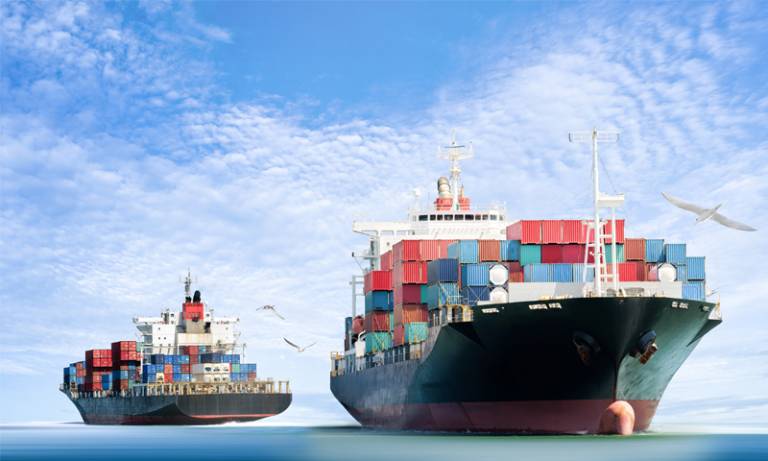Why shipping’s decarbonisation needs to be an equitable transition
27 October 2022
New briefing authored by UCL Energy researcher Dr Aly Shaw with colleagues at Global Maritime Forum explains why prioritising an equitable transition is a necessary part of shipping’s decarbonization transition and presents key elements that an equitable transition could include.

In around six months from now, the International Maritime Organisation, shipping’s global regulator with the authority to drive the sector’s transition, will be revising its initial GHG strategy which includes a discussion of policy measures that will enable the objectives of the strategy. The IMO Member States have increasingly called for an 'equitable’, ‘just’, ‘fair’ and ‘inclusive’ transition, or some combination thereof in their discussions.
The concept of an ‘equitable transition’ now constitutes a key issue in the negotiations on GHG emissions reduction and is central to progress. However, different terminologies are often used interchangeably both inside and outside the IMO, with little clarity on what each may mean in terms of future policy. Recent analysis by Aly Shaw and colleagues from UNCTAD has sought to organize these overlapping and interdependent concepts and to synthesize some of the elements that appear most relevant to each term.
Dr Aly Shaw, Research Fellow at UCL Energy Institute and Policy Lead at UMAS, said:
“We know now that shipping’s energy transition is not simply technological, it’s a socio-economic transition set against a wider backdrop of sustainable development. In our brief we focus on what can be done in the policy space to help ensure an equitable transition as part of a shipping’s response to the threat of climate change. The upcoming IMO discussions are a key to setting the direction of this transition for the coming decades and a time to start designing policies which decrease country and climate inequalities."
The insight brief provides three key justifications for ensuring an equitable transition and finding consensus at the IMO; the clear political mandate for equity from wider UN work which is in turn built into IMO regulations, the moral imperative where climate vulnerable countries suffering current inequalities could potentially also face disproportionately negative effects of policies, and the practical advantages of ensuring a level playing field for a global industry.
The insight brief identifies some of the key elements in terms of policy options currently being discussed that could help to ensure an equitable transition and concludes with a list of suggested requirements.
 Close
Close

